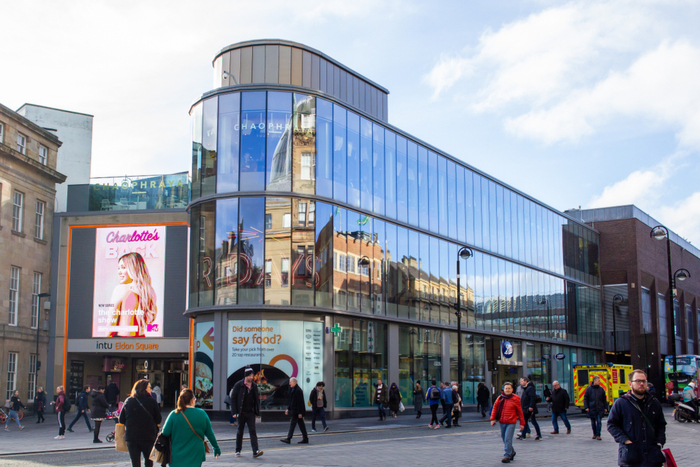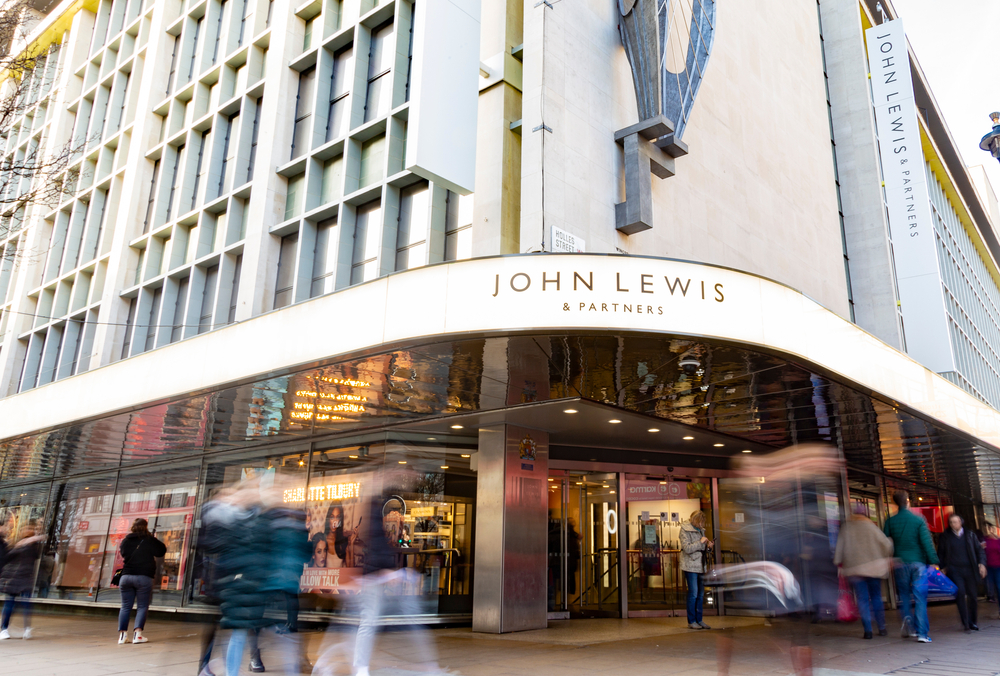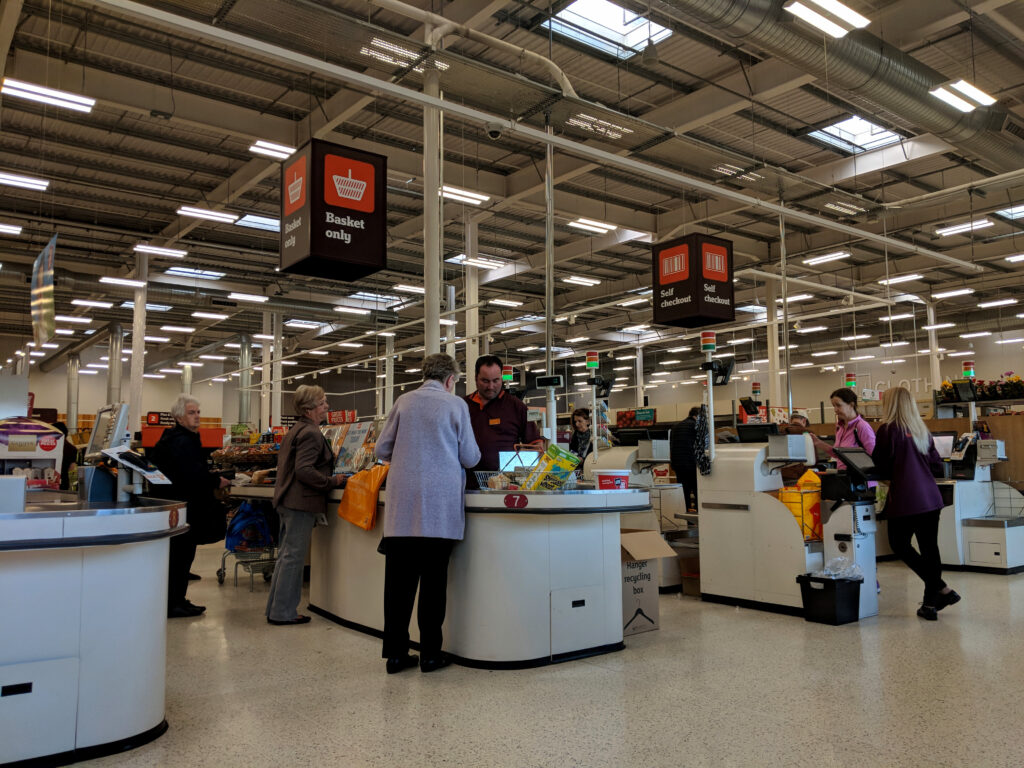A BRIEF TIMELINE
1980: Intu was founded by South African-British businessman Sir Donald Gordon as a real estate investment trust, largely focused on shopping centre management and development. It was initially called Transatlantic Insurance Holdings.
1982: Transatlantic Insurance Holdings acquired a 29 per cent interest in shopping centre developer Capital & Counties by way of a share issue.
1985: Transatlantic Insurance Holdings made a public offer and acquired a controlling stake in Capital & Counties which remained a listed company.
1987: Transatlantic Insurance Holdings is listed on the Luxembourg Stock Exchange.
1992: Transatlantic Insurance Holdings merged with Capital & Counties, securing itself a listing on the London Stock Exchange.
1996: Transatlantic Insurance Holdings changed its name to Liberty International.
2000: Liberty International purchased the remaining 25 per cent of Capital Shopping Centres.
2005: Liberty International purchased Manchester Arndale as part of a joint venture with M&G Real Estate. It unveiled the first phase of the “northern extension”, known as Exchange Court in October. Exchange Court featured the world’s largest Next store.

2006: Liberty International announced the second phase of Manchester Arndale’s extension in April, known as New Cannon Street. In September, the third and final phase of the centre’s northern extension opened. The extensions saw Manchester Arndale increase from 1.4 million sq ft to 1.8 million sq ft.
2007: Liberty International announced its conversion to real estate investment trusts (REIT).
2009: Intu acquired Cardiff shopping centre St David’s Dewi Sant as part of a joint venture partnership with investment company Land Securities.
2010: Liberty International demerged Capital & Counties Properties and changed its name to Capital Shopping Centres Group (CSC).
2011: CSC purchased the UK’s then-third largest shopping centre and leisure complex Trafford Centre in Manchester from The Peel Group. The deal included a 20 per cent stake in CSC worth £700 million for Peel chairman John Whittaker. The deal also valued the Trafford Centre at £1.65 billion at the time.
2011 (cont’d): CSC purchased the Westfield Group’s 75 per cent stake in Westfield Broadmarsh in Nottingham.
2012: Whittaker continued to purchase shares in CSC after the Trafford takeover and became CSC’s largest shareholder with a stake of 24.63 per cent. He eventually became Intu’s deputy chairman.
2013: CSC invested £25 million to change its name and rebrand as Intu. It also rename 12 of its shopping centres to incorporate the consumer-facing brand. An orange and black brand identity was introduced as well as the bird logo.

2013 (cont’d): Intu launched the UK’s first online shopping centre and in-sourced all shopping centre staff, previously employed by facilities management company Bilfinger Europa. Intu also formed of a joint venture with Bilfinger Europa to create an in-house centre management company, Intu Retail Services. This saw it introduce free WiFi into its centres and encourage more shoppers to its centres.
2013 (cont’d): Intu purchased 50 per cent of Midsummer Place in Milton Keynes – now Intu Milton Keynes – from Legal & General for £250.5 million. Over in Spain, Intu acquired Parque Principado shopping centre in Asturias for €162 million as part of a joint partnership with asset management company Canada Pension Plan Investment Board (CPPIB).
2014: Intu purchased Merry Hill Centre (now Intu Merry Hill) and Westfield Derby (now Intu Derby) in a £867.8 million deal.
2015: Intu Puerto Venecia was listed on the Spanish stock exchange. Intu also released an app to send offers to customers based on their location in a mall, as well as enable users to see themselves on a digital map of the building, plan their routes, and observe which retailers are currently offering deals.
2016: Intu acquired the remaining 50 per cent of Merry Hill Estate from Legal & General for £410 million. Intu also acquired the Xanadú Shopping Centre in Madrid, Spain for €530 million. Meanwhile, Intu Asturias was listed on the Spanish stock exchange.
2016 (cont’d): Intu exchanged contracts to sell its 63.5 per cent stake in Intu Bromley to Alaska Permanent Fund Corporation for £177.9 million.
2017: Intu chairman Patrick Burgess stepped down after the company posted strong full year results. He was replaced by non-executive director John Strachan who had been with Intu since 2015. Intu also agreed to a takeover proposal by shopping centre rival Hammerson for £3.4 billion. This needed shareholder approval first.

2018: Hammerson was approached by French property giant Klépierre with a £4.9 billion takeover, prompting it to scrap the Intu takeover proposal. Meanwhile, Peel Group, Olayan Group, and Brookfield Property launched a £2.8 billion takeover bid for Intu but they later withdrew the offer.
2018 (cont’d): Intu announced plans for a £75 million transformation of its Trafford shopping centre, expanding and redesigning its Barton Square area. Intu said the project would be completed by 2020. Intu chief executive David Fischel also announced he would step down in 2019. He had been at the helm of Intu since 2001 and with the company since 1985.
2019: Intu appointed Matthew Roberts as its new chief executive to replace Fischel who left office in April. Intu also appointed Robert Allen as its chief financial officer, replacing Barbara Gibbes, who had been acting as interim chief financial officer.
2019 (cont’d): Intu was in talks to sell three Spanish shopping centres: Puerto Venecia in Zaragoza, Intu Asturias in Oviedo, and Intu Xanadu in Madrid. It sold its share in the Zaragoza asset for €237.7 million at the end of the year, delivering net proceeds of around €115 million.
June 2019: During Arcadia’s creditor meeting in June for its CVA proposals, where it was seeking the support of 75 per cent of creditors to avoid administration, its second-biggest landlord Intu opposed its rescue plan. Intu owned 35 Arcadia shop units across the UK at the time, with Topshop accounting for 70 per cent of units.

June 2019 (cont’d): That same month when Arcadia’s CVAs were approved, Intu was also set to be the biggest victim of Monsoon Accessorize’s CVA. Monsoon had 19 stores in Intu’s centres at the time, of which four were due to face rent cuts of over 50 per cent, while six others would have rents slashed by over a third.
July 2019: Intu sought to reduce head office costs as a result of a decline in rental income amid a wave of CVAs. Meanwhile, results revealed that rental income declined from £460 million in 2017 to £450.5 million in 2018, while occupancy levels fell from 97 per cent to 96 per cent.
August 2019: Intu unveiled the £72 million extension at its Lakeside centre in Essex. Intu said the 225,000sq ft expansion is expected to increase Intu Lakeside’s 20 million per year footfall by more than two million.
September 2019: Intu joined property giants Hammerson, British Land and Grosvenor in pledging to deliver net zero carbon real estate portfolios by 2050 as part of the Climate Change Commitment, which was signed by a total of 23 retail and commercial property firms.
November 2019: Intu sold Sprucefield Retail Park to NewRiver for £40 million. Intu also drafted in PwC to help advise on the restructuring of its balance sheet.
January 2020: Intu it sold its Oviedo asset, raising around €85 million. Intu also confirmed plans to ask investors for £1 billion to raise new equity as it sought to fix its balance sheet.
February 2020: Intu said it was in talks with Hong Kong-based retail property investor Link Real Estate Investment Trust in a bid to pay down its £5 billion debt pile. A day after confirming discussions, Intu saw its shares drop 27.1 per cent after Link pulled out of talks.
February 2020 (cont’d): Intu agreed to an extension on its credit facility with its lenders on the condition that it can raise a total of £1.3 billion equity. The new £440 million revolving credit facility will be provided by all seven of its existing banks. It was due to replace its £660 million facility which expired in October 2021.
March 2020: Intu hired House of Fraser’s former retail operations director Sally Haskayne as head of fashion partnerships. Jockey Club’s former head of partnerships Bruce Gardner was also appointed to lead on strengthening and building new relationships with consumer goods brands. Meanwhile, Christopher Baker and Nick Round moved over from Intu’s asset management team to take on the roles of head of lifestyle partnerships and head of food, beverage and leisure partnerships respectively. James Miller was appointed as head of analytics and insight.
March 2020 (cont’d): Intu scrapped a £1.3 billion emergency cash call as not enough investors came forward to support the call. The company also had £4.5 billion of debt. It warned that it could collapse if it was unable to raise further funds, after reporting a loss of £2 billion for 2019. Intu shares had lost almost 90 per cent of their value in a year, and the results announcement prompted a 25 per cent drop to just over 4p.

March 2020 (cont’d): As the coronaviris crisis escalated and lockdown came into place towards the end of March, retailers delayed rent payments. Intu warned it would need some waivers from its lenders otherwise it was likely to breach its debt covenants in July. Intu also said it would cut service charge for its tenants by 22 per cent in the second half of 2020, in a bid to offer support to retailers amid the pandemic.
April 2020: Intu said it was making preparations to take further action with tenants who don’t pay the rent and service charges they owe. Intu said it could lose some of its key retail assets as early as June, as bondholders drew up plans to take control of the assets.
April 2020 (cont’d): Law firm Clifford Chance and investment bank Moelis & Company were appointed to advise bondholders of £1.3 billion of debt secured against some of Intu’s centres. Lakeside in Essex, Braehead in Glasgow, Watford in Hertfordshire and the Victoria Centre in Nottingham were at threat of being seized.
May 2020: Intu hired David Hargrave as chief restructuring officer and non-executive director. Vodafone’s former head of HR James Saunders also came on board to join the newly-created role of chief people officer as part of Intu’s five-year strategy.
May 2020 (cont’d): Intu sought standstill-based agreements with creditors as it struggled with the Covid-19 disruption and warned of covenant breaches at the end of June. Intu Metrocentre lenders were due to appoint advisers for talks over its future financial structure. Intu also drew up plans to begin the gradual reopening of non-essential retail stores at its 14 centres nationwide.
June 2020: Intu warned that its shopping centres might close if financial restructuring talks with lenders failed, and lined up KPMG as administrators as a “contingency”. Intu said it expected the amount it collects from rents and service charges to tumble by £181.6 million in 2020. Intu’s administrator-in-waiting KPMG also sought a £12 million cash injection from bondholders as part of a potential insolvency process.
June 26: Intu fell into administration after crunch talks with its lenders were unsuccessful. Its shares on the London Stock Exchange were suspended but Intu said its 17 shopping centres, which are held in separate operating companies, will continue to trade for the time being despite its insolvency.
June 28: News emerged that Canadian pension fund Canada Pension Plan Investment Board (CPPIB) reportedly didn’t agree to Intu’s 15-month debt standstill, which is what pushed it into administration. CPPIB was also planning to seize control of Trafford Centre via a £250 million loan secured against it.
Intu employs about 3000 staff across the UK while a further 102,000 work for the shops within its 17 shopping centres in the country.
THE REASONS
With 14 wholly-owned centres and three joint ventures, Intu is the UK’s largest shopping centre owner.
However, in today’s climate it’s no surprise that shopping centres like Intu are struggling. Due to high business rates, retail tenants are increasingly investing in online offerings for customers – also to meet rising demand for online shopping. The shops likely to survive are those with a strong offline proposition.
Meanwhile, a government decision to temporarily close non-essential shops due to the Covid-19 pandemic has left online players with a much more profitable business model.
It’s up for debate whether the pandemic is primarily to blame for Intu’s demise, but the fact that the administration is happening now suggests it may have accelerated and compounded Intu’s problems – especially when the surge of CVAs and administrations announced by retail tenants is factored in.
“The challenges affecting UK retail have been exacerbated by the impact of Covid-19”
Nottingham Business School research associate Nelson Blackley argued that Intu’s demise was down to how it relied on ever-rising rental income from retail tenants, as well as the increasing value of a property portfolio.
“Many well-known UK retailers have undertaken insolvency proceedings such as CVAs and closed some or all their physical stores,” he told Retail Gazette.
“Some of their biggest tenants with so-called ‘anchor stores’ such as Debenhams, House of Fraser and Topshop’s owner, Arcadia, had all resorted to emergency restructurings, demanding rent reductions on shorter leases and this has impacted on shopping centre landlords finances as well as shopping centre occupancy and footfall levels.”
Blackley added that this reduced demand for retail space in Intu’s shopping centres, meant the value of its assets plunged by 22 per cent in 2019 to £6.6 billion and have continued to do so during 2020.
Intu’s problems were also exacerbated by how it had amassed a high level of debt over the years. It stood at £4.7 billion in 2020.
Rental income had also dropped, with many retail tenants struggling to keep up with rent payments because of online competition, high business rates and rising wage costs. In 2019, Intu’s revenue fell by almost 40 per cent and it recorded a pre-tax loss of £2 billion.
“Intu’s administration comes as retailers aren’t paying rent or going out of business”
Peter Scott, retail consultant at Graystone Strategy, said Intu’s administration comes as retailers aren’t paying rent or are going out of business due to the lockdown, creating empty retail spaces that can’t be filled overnight.
“Covid-19 will have brought things to a head and exposed the cracks in Intu’s operating model,” he said.
“Intu needs to look at how it can create a more experiential environment with activities, shows, and temporary shops.
“Places like Westfield have done a good job of thinking about their overall shopping mix and adding ‘exhibition’ space where they can do big product launches for instance.”
Rick Smith, managing director of business rescue experts Forbes Burton, added that Intu’s demise comes down to the fact there has been a drop in consumer spending. He added that even before the pandemic, this trend was forcing retailers to close stores or file for insolvency procedures.
Moreover, the ONS found that online sales rose to their highest proportion on record in May while consumers stayed at home at the height of lockdown. They accounted for 33.4 per cent of total spending, compared with 30.8 per cent in April.
The pandemic has undoubtedly forced consumers to change their shopping behaviours, and the proportion of spending online reached new highs during lockdown. This may well have been the final nail in the coffin for Intu’s plethora of challenges before the pandemic.
Click here to sign up to Retail Gazette‘s free daily email newsletter


















